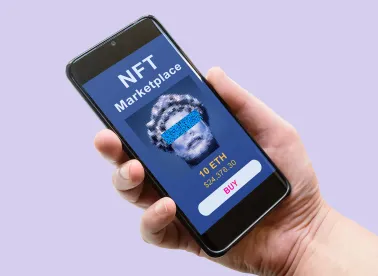The U.S. Commodity Futures Trading Commission (CFTC) filed a complaint on Jan. 9, 2023, in the U.S. District Court for the Southern District of New York against Avraham Eisenberg. The U.S. Securities and Exchange Commission (SEC) also filed a complaint against Eisenberg on Jan. 20, 2023. The complaints allege that Eisenberg engaged in a manipulative and deceptive scheme to artificially inflate the price of a native digital asset and swaps offered by Mango Markets (Mango), a decentralized digital asset platform, resulting in the misappropriation of over $100 million from the platform’s users.
According to the complaints, Mango offered and sold its native digital asset (MNGO token) and derivatives contracts referred to as “perpetual contracts” or “perpetual futures” on the platform (MNGO-USDC Swaps) that constituted swaps under the Commodity Exchange Act, among other activities. These swaps were based on the value between two digital assets: MNGO and USDC (a stablecoin). The Mango platform also allowed its users to borrow certain digital assets (some of which are considered commodities), with the maximum value of the borrowed amount based on the value of the borrower’s assets held by Mango. Notably, the SEC alleges that the MNGO tokens were purchased and sold as investment contracts and are therefore securities under federal securities laws.
According to the CFTC and SEC, Eisenberg devised a plan to artificially inflate the value of his own swap contract holdings with Mango through the price manipulation of MNGO. With the price inflated, he would borrow a significant amount of digital assets with no intention of repayment, resulting in what is known as a “wash” transaction. To affect the price manipulation, Eisenberg leveraged a program known as an “oracle” that pulls data from an off-blockchain source and brings it onto the blockchain so that it can be used by smart contracts. By design, Mango used an oracle to determine market prices of assets on its platform, including MNGO and USDC, and ultimately the MNGO-USDC Swaps.
The CFTC and SEC allege that Eisenberg, with knowledge of Mango’s use of oracles and the fact that the MNGO coin was relatively illiquid, took out a large position in MNGO-USDC Swaps ($19 million), then bought large quantities of MNGO on the oracle exchanges, which caused a brief, artificial spike in MNGO, and therefore, MNGO-USDC Swaps in the Mango platform. Eisenberg then used the inflated value of his MNGO-USDC Swaps as collateral to borrow several other digital assets for a total of over $114 million. He transferred the borrowed digital assets away from his Mango wallet and the MNGO and the MNGO-USDC Swap prices immediately declined to pre-manipulation levels, resulting in Eisenberg’s borrowings being undercollateralized and Mango left with virtually no digital assets of value.
These complaints serve as prime examples of regulators’ awareness and attention to the details and activities that are indicia of potential manipulation in the marketplace and, equally important, regulators’ willingness to prosecute marketplace operators to protect customers.






 />i
/>i

